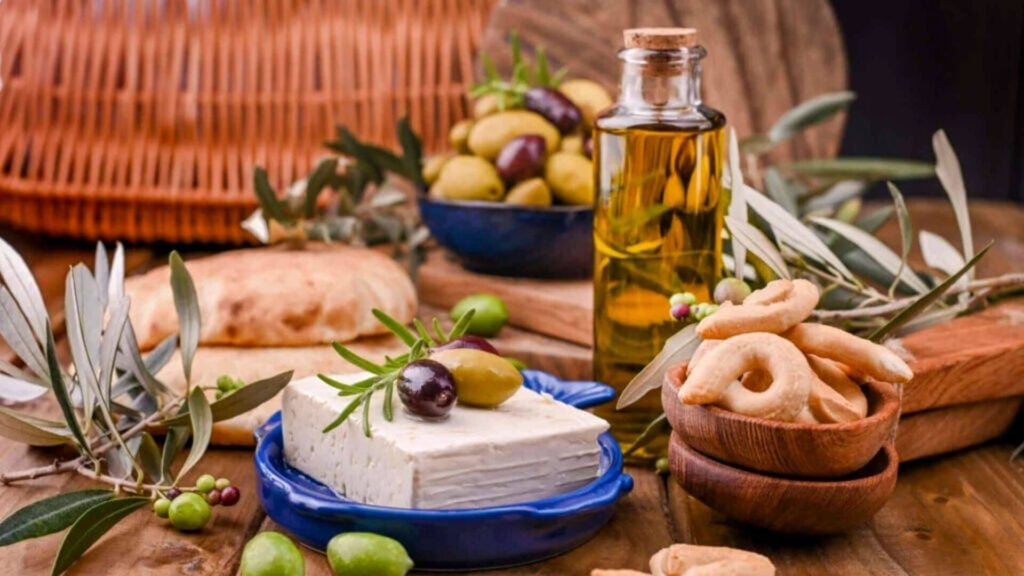The Greek government is actively pursuing the exemption of key national exports olive oil, feta cheese, yogurt, olives, and wine from the 15 per cent tariff agreed upon in the new EU–US trade framework, as fears grow over the impact on producers and Greece’s trade balance with the United States.
Government officials are waiting for the formalisation of the EU–US agreement before entering bilateral talks at the EU level to argue for the protection of Greek PDO (Protected Designation of Origin) products, which form a cornerstone of the country’s export identity.
One of the emerging markets attracting Greek producers is Australia. According to Reuters, Greek olive oil producer Konstantinos Papadopoulos began seeking alternative markets as early as spring immediately after Donald Trump signalled plans to impose new tariffs on EU goods. Papadopoulos has already signed a deal in Brazil and was reportedly finalising negotiations with an Australian buyer during the news agency’s visit to his olive grove.
The strategy, as Reuters notes, is market diversification to reduce dependency on the US. In line with this approach, Australia is increasingly being seen as a prime alternative for Greek exporters, due in part to the strong Greek diaspora and growing demand for Mediterranean products.
“While trade ties between Greece and Australia have historically not been central for either country, the agri-food sector shows strong growth potential,” noted a report on ecomonistas.gr. “The demand for quality Greek and Australian products is rising on both ends.”
U.S. tariffs and their broader implications
The Trump-imposed 15 per cent tariffs represent a drop from initial threats of 20–30 per cent, but still significantly exceed the 2.5 per cent average duties before the U.S. overhauled its trade policy citing high deficits and deindustrialisation. Greek exports to the U.S. totalled €2.4 billion in 2024, while imports from the U.S. were slightly lower at €2.16 billion, making the balance marginally positive. The government is eager to avoid slipping into a trade deficit.
The Ministry of National Economy and Finance, led by Kyriakos Pierrakakis, welcomed the deal as a way to avoid a full-blown trade war, but stressed that Greece ideally wants a zero tariff rate.
“Fifteen percent is better than what was originally planned, but still too heavy,” he said, also calling for the removal of internal EU barriers that act like internal tariffs on services and manufacturing.
Meanwhile, the State Budget Office in Parliament has issued a detailed impact study covering 20 sectors over the 2000–2024 period. Products like olives (€100 million in exports), olive oil (€30 million), and feta (€27 million) are among the most affected.
The report recommends targeted support for vulnerable sectors, including cost-reduction measures like lower non-wage labour costs or energy expenses, and reskilling initiatives to maintain business continuity and employment.
EU–US trade deal leaves questions unanswered
While the 15 per cent tariff rate applies to most EU exports (affecting an estimated 70 per cent of value), the agreement includes possible exemptions for key European sectors, such as aircraft parts, certain chemicals, and generic pharmaceuticals.
However, details remain vague regarding agricultural goods. The European Commission notes some concessions, such as duty-free quotas for U.S. seafood (e.g., Alaskan cod, Pacific salmon, shrimp) and certain “non-sensitive” agricultural exports like soy, grains, and processed foods.
Commission statements emphasise protection for sensitive EU agricultural sectors, including beef and poultry, and acknowledge ongoing negotiations about possible exemptions for European wine and spirits a matter of particular interest for Greece.
Non-tariff barriers are also a major sticking point. While both sides pledged to streamline standards and mutual recognition processes, exact mechanisms remain unclear. The U.S. is particularly keen on easing entry for its pork and dairy products, while the EU aims to safeguard its regulatory sovereignty.
In short, while the deal may have prevented a full-scale trade war, it brings considerable uncertainty for Greek exporters. With market diversification now a necessity, Australia, India, the Middle East, and China are being positioned as future frontiers offering opportunity, but also requiring significant investment and strategic adaptation.









